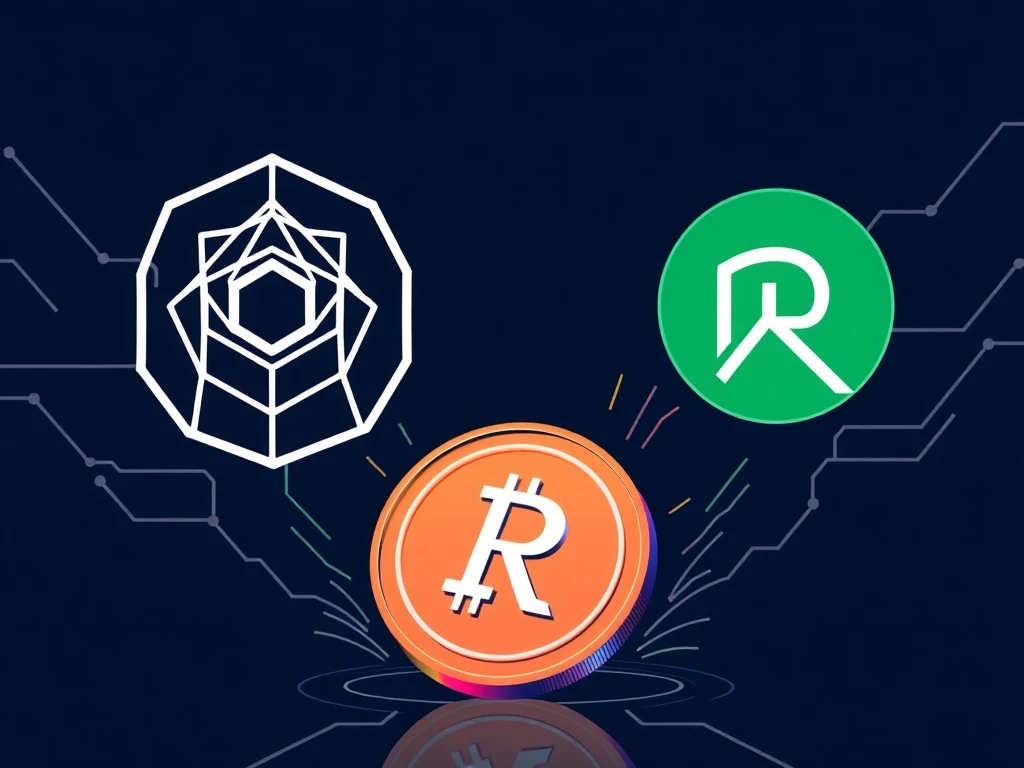Urgent: Robinhood OpenAI Tokens Not Equity, Says Company

Confusion is brewing after trading platform Robinhood distributed tokens labeled ‘OpenAI’ to users. The artificial intelligence giant, OpenAI, has swiftly issued a statement clarifying that these tokens are absolutely *not* equity in their company. This puts the spotlight on the nature of these Robinhood OpenAI tokens and what they truly represent.
OpenAI’s Stance on OpenAI Equity Tokens
OpenAI was quick to distance itself from the tokens distributed by Robinhood in the European Union. On Wednesday, the company stated unequivocally that they were not involved in the distribution and do not endorse it. Their core message was clear:
- Tokens distributed by Robinhood do not represent equity in OpenAI.
- Any transfer of OpenAI equity requires explicit company approval.
- OpenAI did not approve any such transfer related to these tokens.
- They urged users to exercise caution regarding these tokens.
This strong denial directly addresses the potential misconception that these OpenAI equity tokens grant holders a stake in the private company.
Robinhood’s Vision for Tokenized RWA
In response to the situation, Robinhood representatives clarified their position. They stated that the token giveaways were part of a push into tokenized stock trading for eligible European customers. According to Robinhood:
“These tokens give retail investors indirect exposure to private markets, opening up access, and are enabled by Robinhood’s ownership stake in a special purpose vehicle.”
This suggests the tokens are linked to a Special Purpose Vehicle (SPV) that holds an interest in OpenAI or SpaceX, rather than being direct equity tokens issued by the companies themselves. This approach is a common method for providing exposure to private assets via public markets or tokenized platforms. It’s part of a broader trend in Tokenized RWA (Real-World Assets), aiming to make illiquid assets like private equity, private credit, and real estate more accessible through fractionalization on a blockchain.
Robinhood Tokenized Stock Push in Europe
Robinhood’s distribution of the OpenAI and SpaceX tokens, valued at $5 each, is linked to its recent initiatives in the EU market. The company is actively launching a layer-2 blockchain network specifically designed to settle tokenized equity trades. This move was first hinted at in May 2025, with a formal announcement made at an event in Cannes, France. The Robinhood tokenized stock strategy aims to integrate traditional assets onto blockchain platforms, blurring the lines between traditional finance and digital assets. CEO Vlad Tenev emphasized this vision, stating, “Crypto is much more than a speculative asset, it has the potential to become the backbone of the global financial system.” While the European rollout is underway, there is no timeline yet for a potential US launch.
Elon Musk on OpenAI and ‘Fake’ Tokens
Adding to the controversy, SpaceX and Elon Musk OpenAI co-founder weighed in on the matter. Musk, who left OpenAI’s board in 2018 and has since become a vocal critic, called the tokens “fake.” His criticism aligns with his ongoing dispute with OpenAI, which he accuses of deviating from its original non-profit mission towards a profit-driven model. Musk has filed lawsuits alleging breach of charter and misuse of charitable assets. His comment reinforces the narrative that these tokens do not represent legitimate equity in the company he helped found.
What This Means for Tokenized Assets
This incident highlights critical issues in the evolving world of tokenized assets:
- Clarity: The need for absolute clarity on what a token represents (direct ownership, indirect exposure via SPV, synthetic asset, etc.).
- Endorsement: The importance of the underlying asset issuer’s involvement or endorsement for legitimacy.
- Regulation: The complex regulatory landscape surrounding tokenized securities and private assets.
- Investor Education: The necessity for platforms to clearly communicate the nature and risks of tokenized products to retail investors.
While the goal of using tokenization to democratize access to private markets is compelling, incidents like this underscore the potential for confusion and the importance of due diligence from both platforms and investors.
Conclusion
The situation with Robinhood’s OpenAI tokens serves as a crucial reminder in the burgeoning field of tokenized real-world assets. While Robinhood aims to provide innovative access to private markets through tokenization and its new layer-2 network, OpenAI’s swift denial of the tokens representing equity in their company, coupled with Elon Musk’s criticism, creates significant uncertainty. This event stresses the vital need for transparency and clear communication regarding the nature and legitimacy of tokenized assets as the lines between traditional finance and the crypto world continue to blur. Investors should proceed with caution and ensure they understand exactly what they are buying when engaging with tokenized private assets.







